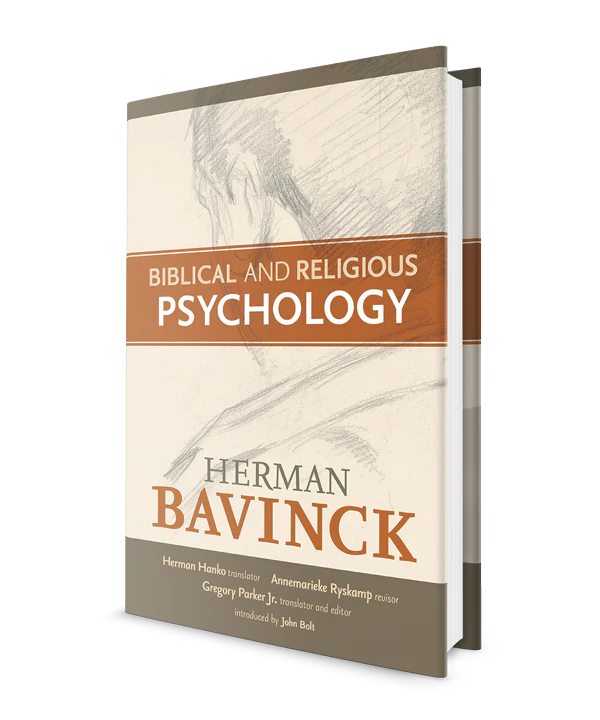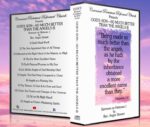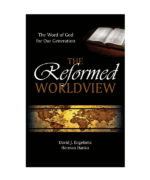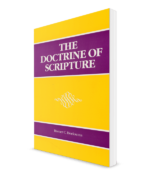The Dutch Reformed theologian Herman Bavinck (1854-1921) is famous for his studies in many disciplines, including psychology. The pinnacle of his research in theological psychology is his Biblical and Religious Psychology. This book is divided into two parts which present an anthropology that explains man psychologically, in relation to God, according to both special and general revelation. Both readers acquainted with Bavinck and new readers will be captivated by the author’s typically rich and erudite style.
In this book, Bavinck deals with man as soul and body, and as a religious and moral being. He delves deeply into Scripture’s teaching on man’s spirit, heart and desires, and his intellect and his will. Man is viewed vis-à-vis the Triune God on the one hand and animals on the other. Bavinck treats the effects upon man of both sin (original and actual) and regeneration, as well as the influence of one’s heredity and environment. He shows how all of this influences the Christian’s view of children and education.
Despite Bavinck’s unbiblical doctrine of common grace and his erroneous view of an image of God in the unregenerate, the discerning reader will find much that is solidly Reformed and theologically helpful in an area often treated shallowly in Christian literature.
Biblical and Religious Psychology, translated by Herman Hanko and edited by Gregory Parker Jr., with revisions by Annemarieke Ryskamp, is an enlightening and stimulating work that will help all readers think more deeply about the relationship between theology and psychology, and appreciate biblical teaching on the complexities of being human.
What others are saying about the book
“In recent years there has been a renewal of interest in a ‘theological psychology.’ While a rift may have existed in the recent past between theology and psychology, this has not always been the case. Herman Bavinck was one of many theologians who thought deeply about the connection between these two disciplines. He did this in a time when psychology was asserting itself as a science. For anyone interested in how one can put the words ‘biblical’ and ‘psychology’ together, this is an important work to consider. The readers will find themselves challenged and encouraged to take up the task of constructing a ‘theological psychology’ anew.” – Cameron Clausing, lecturer in applied theology and missional engagement at Christ College (Sydney, Australia)
“This book showcases Bavinck’s attentiveness to the empirical granularity of biblical teaching on humanity. Further, the text represents Bavinckʼs mature writings on these topics, so readers who want a fuller picture of his reflections on the issue cannot neglect reading these texts. The editors and translators should be celebrated for bringing this accessible yet profound work to a wider audience, and the incisive introduction by John Bolt makes it all the more worthwhile. Take up and read!” – N. Gray Sutanto, assistant professor of systematic theology of Reformed Theological Seminary (Washington D.C.), author of God and Knowledge: Herman Bavinck’s Theological Epistemology, co-translator and co-editor of Herman Bavinck’s Christian Worldview
“Bavinck spent his career as a theologian thinking about the human subject. Here you get his final thoughts on the psyche, consciousness, and particularly what the Bible teaches about human beings and how we respond to God’s presence. This is the work of the mature Bavinck, which makes it worth paying attention to.” – Cory Brock, minister in the Free Church of Scotland at St. Columba’s (Edinburgh), and lecturer in systematic theology and preaching at Edinburgh Theological Seminary
“As the 20th century dawned, the discipline of psychology celebrated its emancipation from the Bible and theology. As the new psychology was explaining more and more of the human experience, the rich, previously theologically informed constructs such as soul, spirit, and heart were being reduced to mere consciousness that could be measured in a laboratory. The divorce between psychology and theology seemed to be final. However, thanks to the work of Hanko, Ryskamp and Parker, we now know this was not the case. In their very readable translation of Bavinckʼs Biblical and Religious Psychology, we see that Bavinck was still trying to carve out a place for a theologically informed psychology. Not only will this volume be of historical benefit, but Bavinck’s treatment of the human soul in all of its fullness can and should inform contemporary psychology-theology integration discussions.” – Bryan N. Maier, associate professor of Psychology and Counseling at Cairn University
“When framed in a biblical anthropology, psychology as the study of human soul activity is a necessary and valuable tool for educating children.” – John Bolt, “Introduction,” professor emeritus of Calvin Theological Seminary and editor of Herman Bavinck’s Reformed Dogmatics (Gereformeerde Dogmatiek)
“… you may be thinking: what does psychology have to do with the Bible? If so, it’s likely because you associate psychology with a secular social science dealing with the human mind and behaviour. Because so much psychology is based on humanistic foundations, it may seem like it can’t have much, if anything, to do with the Bible. Think again. In a university you could take an anthropology course. But did you know you could also take an anthropology course in seminary? In that context, anthropology is an area of systematic theology dealing with the study of the human race – what does the Bible say about it? Similarly here, Herman Bavinck is approaching the study of the human mind and human behaviour from an explicitly biblical perspective. What does the Bible say about our psychology? … Bavinck asserts that ‘also culture and history are part of the means by which the invisible attributes of God are known … God reigns even in this age; nature, culture, and history are means through which he speaks to us even more loudly than in the past’ (p. 206). I’m not sure that there is an earlier broader sense of ‘nature’ in Reformed theology. Bavinck didn’t provide any evidence to support his claim and my sources don’t seem to support it. I checked his Reformed Dogmatics to see if he said more about it there. He did (vol. 1, chapter 10). However, there he also didn’t give references and, interestingly, he didn’t include culture. I don’t believe the Bible teaches that culture is a form of general revelation. I bring this up only because so much mischief results when culture is considered as a form of revelation. If science is considered part of culture (which it should be), then science becomes a form of revelation. If entertainment is considered part of culture (obviously it is), then TV shows, movies, and pop songs are forms of revelation. Some ‘neo-Calvinists’ in our day argue for exactly that and I wonder if the seed of that development might be here in Bavinck.” (Clarion)
“I consider this material to be of such interest and help, especially to those who are engaged in the work of teaching covenant children, that a translation and publication of it is worthwhile in spite of elements with which I disagree. Bavinck did work in the area of Christian psychology which is not to be found in any English writings.” – Herman Hanko, “Translator’s Foreword,” professor emeritus of Protestant Reformed Theological Seminary










